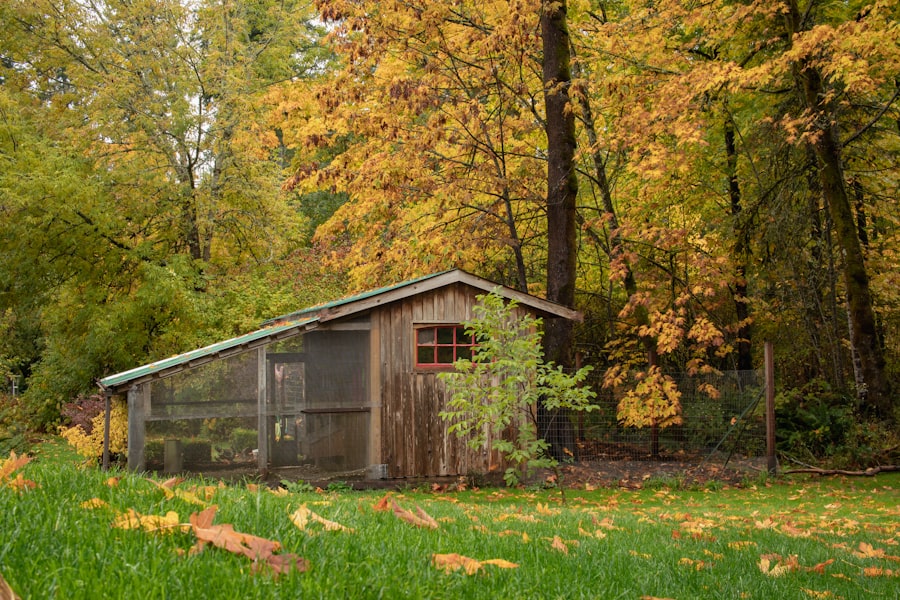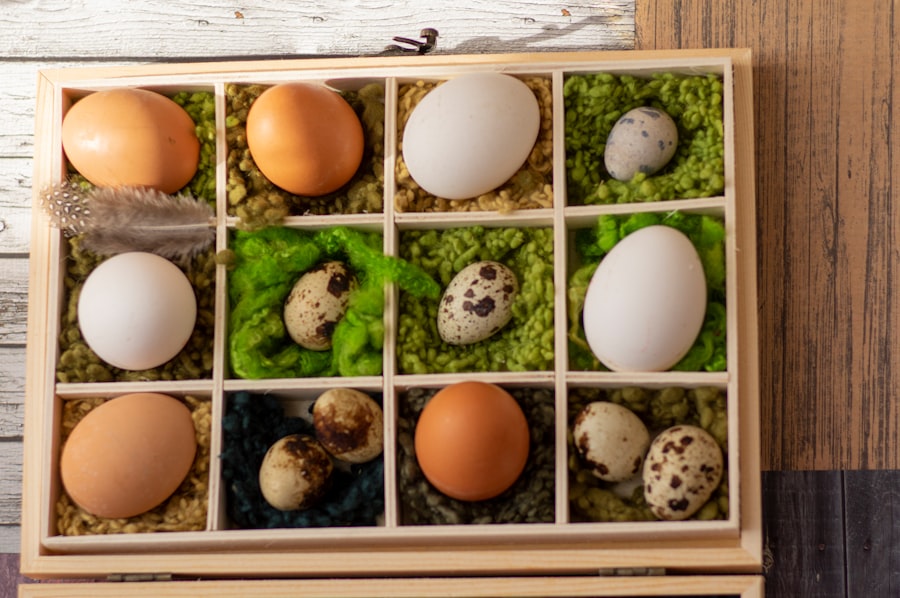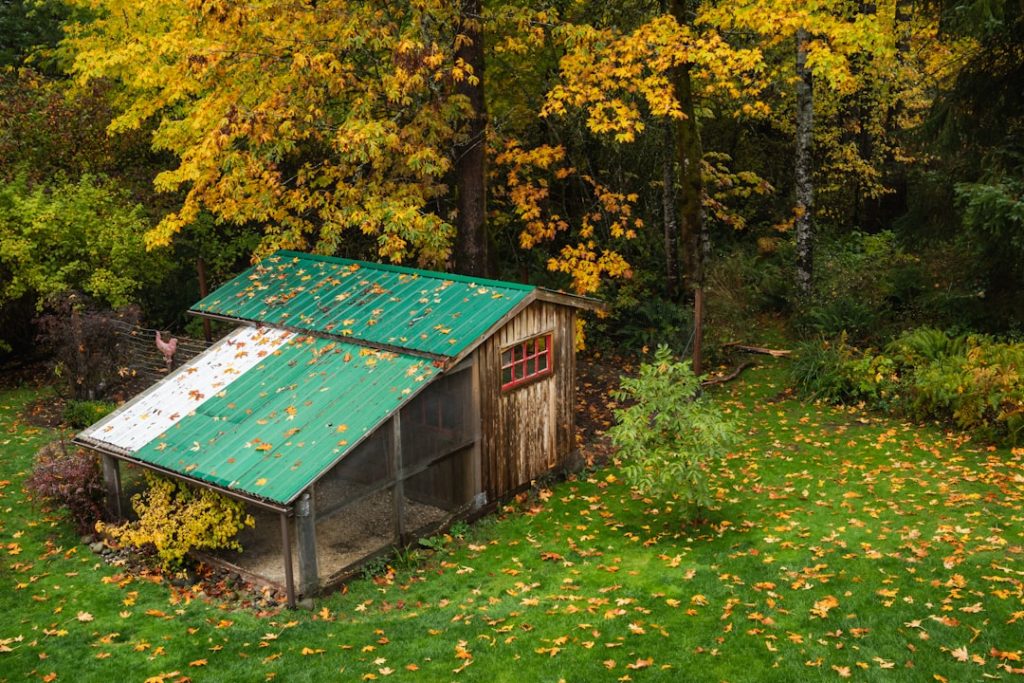When selecting chickens for a backyard coop, several factors should be considered. Climate is a crucial element, as some breeds are better adapted to cold weather, while others thrive in warmer conditions. The intended purpose of the chickens is also important, whether they are for egg production, meat, or dual-purpose use.
Popular egg-laying breeds include Rhode Island Reds and Leghorns, while Cornish Cross and Plymouth Rock are known for meat production. Temperament is another significant factor, especially for families with children or other pets. Some breeds are more docile and friendly, making them easier to handle.
Space availability in the backyard is also crucial, as certain breeds are better suited for confinement, while others require more room to roam. Bantams are a good choice for limited spaces, while larger breeds like Orpingtons or Australorps are better for free-range environments. Noise levels should be considered, particularly in areas with close neighbors, as some breeds are more vocal than others.
Lastly, the availability of the chosen breed in the local area may impact the ability to acquire chicks or adult birds. In conclusion, selecting the appropriate chicken breed for a backyard coop involves careful consideration of climate, purpose, temperament, space requirements, noise level, and availability to ensure a successful and enjoyable experience.
Table of Contents
- 1 Building a suitable coop
- 2 Providing proper nutrition
- 3 Ensuring adequate space and ventilation
- 4 Protecting from predators
- 5 Maintaining cleanliness
- 6 Monitoring and addressing health issues
- 7 FAQs
- 7.1 What are the benefits of keeping yard chickens?
- 7.2 What do yard chickens need to thrive?
- 7.3 How do I keep yard chickens safe from predators?
- 7.4 What are some common health issues for yard chickens?
- 7.5 Are there any local regulations or ordinances I need to be aware of when keeping yard chickens?
Key Takeaways
- Consider the climate, space, and purpose of raising chickens when choosing the right breed for your coop.
- Build a coop that provides enough space for the number of chickens you plan to raise and includes proper ventilation and protection from the elements.
- Provide a balanced diet for your chickens, including a mix of grains, protein, and access to fresh water and grit for digestion.
- Ensure that your chickens have enough space to move around and access to fresh air and sunlight, while also protecting them from predators.
- Protect your chickens from predators by securing the coop with sturdy fencing and using deterrents like motion-activated lights or sound devices.
- Regularly clean the coop to prevent the buildup of waste and bacteria, and provide a clean and healthy environment for your chickens.
- Monitor your chickens for signs of illness and address any health issues promptly, including seeking veterinary care when necessary.
Building a suitable coop
Size and Space
The general rule of thumb is to allow 2-3 square feet of space per chicken inside the coop, and 8-10 square feet per chicken in an outdoor run. This will ensure that your chickens have enough room to move around comfortably and engage in natural behaviors like scratching and dust bathing.
Ventilation and Temperature Regulation
Make sure the coop is well-ventilated to prevent moisture buildup and ammonia levels from becoming too high. Adequate ventilation will also help regulate temperature and prevent heat stress during the summer months.
Roosting Space and Predator-Proofing
Provide sturdy and comfortable roosting bars for your chickens to perch on, placing them higher than the nesting boxes to discourage chickens from sleeping in the nesting boxes, which can lead to dirty eggs. Additionally, make sure the coop is predator-proof by using hardware cloth instead of chicken wire for windows and vents, securing latches on doors and windows, and burying wire mesh around the perimeter of the coop to prevent digging predators like raccoons and foxes from gaining access.
Placement and Overall Considerations
Finally, consider the placement of the coop within your backyard. Ideally, the coop should be situated in a well-drained area with good sun exposure and protection from strong winds. Overall, building a suitable coop for your backyard chickens requires careful consideration of size, ventilation, roosting space, predator-proofing, and placement within your yard.
Providing proper nutrition

Providing proper nutrition is essential for keeping your backyard chickens healthy and productive. When it comes to feeding your chickens, there are several key factors to consider. First and foremost, make sure your chickens have access to a balanced diet that meets their nutritional needs.
This typically includes a commercial layer feed that is specifically formulated for laying hens. Layer feed contains the right balance of protein, calcium, vitamins, and minerals to support egg production and overall health. Additionally, consider supplementing their diet with treats like fruits, vegetables, mealworms, and scratch grains to provide variety and enrichment.
Another important aspect of providing proper nutrition is ensuring that your chickens have access to clean water at all times. Chickens need constant access to fresh water to stay hydrated and maintain egg production. Make sure their waterers are kept clean and free of debris, and consider using heated waterers during the winter months to prevent freezing.
Additionally, provide access to grit and oyster shell to help with digestion and calcium absorption. Finally, consider the feeding schedule for your chickens. Some backyard chicken keepers prefer to free-feed their chickens by providing unlimited access to food throughout the day, while others prefer to feed their chickens at specific times to prevent waste and encourage foraging behavior.
Overall, providing proper nutrition for your backyard chickens requires careful consideration of balanced feed, supplemental treats, clean water, grit and oyster shell, and feeding schedule.
Ensuring adequate space and ventilation
Ensuring adequate space and ventilation is crucial for maintaining a healthy environment for your backyard chickens. When it comes to space requirements, it’s important to provide enough room for your chickens to move around comfortably and engage in natural behaviors like scratching and dust bathing. The general rule of thumb is to allow 2-3 square feet of space per chicken inside the coop, and 8-10 square feet per chicken in an outdoor run.
This will help prevent overcrowding and reduce the risk of aggressive behavior and disease transmission. In addition to space requirements, proper ventilation is essential for maintaining good air quality inside the coop. Adequate ventilation helps remove excess moisture, ammonia, and airborne pathogens that can lead to respiratory issues and other health problems in chickens.
Make sure there are plenty of windows, vents, and openings in the coop to allow for fresh air circulation without creating drafts that could lead to cold stress during the winter months. Consider using hardware cloth instead of chicken wire for windows and vents to prevent predators from gaining access while still allowing for airflow. Additionally, make sure the coop is well-insulated to help regulate temperature and prevent heat stress during the summer months.
Overall, ensuring adequate space and ventilation for your backyard chickens requires careful consideration of space requirements, ventilation design, air quality, insulation, and protection from drafts.
Protecting from predators
Protecting your backyard chickens from predators is essential for their safety and well-being. When it comes to predator-proofing your coop and run, there are several key factors to consider. First and foremost, make sure all openings in the coop are secured with hardware cloth instead of chicken wire.
Hardware cloth is much stronger and more durable than chicken wire, making it more difficult for predators like raccoons, foxes, and weasels to gain access. Additionally, consider burying wire mesh around the perimeter of the coop and run to prevent digging predators from getting in. Another important aspect of protecting your chickens from predators is providing secure latches on doors and windows.
Predators are often quite clever and persistent when it comes to finding ways into a coop or run, so it’s important to use heavy-duty latches that can’t be easily manipulated or pried open. Consider using predator-proof locks or latches that require both lifting and sliding movements to open. Additionally, consider installing motion-activated lights or alarms around the coop to deter nocturnal predators like raccoons and opossums.
Finally, consider adding a livestock guardian dog or other predator-deterrent animals like guinea fowl or geese to help protect your flock from aerial predators like hawks and owls. Overall, protecting your backyard chickens from predators requires careful consideration of predator-proofing measures such as hardware cloth, secure latches, perimeter fencing, deterrent animals, and motion-activated deterrents.
Maintaining cleanliness

Establishing a Regular Cleaning Schedule
First and foremost, make sure you have a regular cleaning schedule in place. This typically involves removing soiled bedding from the coop at least once a week and replacing it with fresh bedding. Additionally, make sure you clean out nesting boxes regularly to prevent the buildup of feces and bacteria that can contaminate eggs.
Effective Waste Management
Another important aspect of maintaining cleanliness is managing waste effectively. Consider using a deep litter method in the coop and run, which involves adding layers of carbon-rich materials like straw or wood shavings on top of soiled bedding instead of removing it completely each time. This helps promote natural decomposition processes that can help control odors and reduce fly populations. Additionally, consider composting chicken manure along with other organic materials from your yard and kitchen to create nutrient-rich fertilizer for your garden.
Pest Control and Regular Inspections
Finally, make sure you have a plan in place for managing pests like mites and lice that can infest your chickens and coop. Regularly inspect your chickens for signs of infestation such as feather loss or irritated skin, and consider using natural pest control methods like diatomaceous earth or herbal sprays to keep pests at bay. Overall, maintaining cleanliness in your backyard coop requires careful consideration of cleaning schedules, waste management methods, composting practices, pest control measures, and regular inspections.
Monitoring and addressing health issues
Monitoring and addressing health issues in your backyard chickens is essential for preventing disease outbreaks and promoting overall well-being in your flock. When it comes to monitoring their health, there are several key factors to consider. First and foremost, make sure you have a regular health check routine in place.
This typically involves observing your chickens daily for any signs of illness or injury such as lethargy, decreased appetite, abnormal droppings, respiratory issues, or unusual behavior. Another important aspect of monitoring their health is keeping detailed records of their egg production, weight fluctuations, vaccinations, deworming schedules, and any treatments or medications they receive. This can help you identify patterns or trends that may indicate underlying health issues that need attention.
Additionally, make sure you have a plan in place for addressing common health issues that may arise in your flock such as respiratory infections, parasites like mites or worms, bumblefoot or other foot injuries, egg binding or reproductive issues in hens, or injuries from predator attacks or aggressive behavior within the flock. Consider establishing a relationship with a poultry veterinarian who can provide guidance on preventative care measures as well as diagnose and treat any health issues that may arise. Finally, make sure you have a well-stocked first aid kit on hand that includes basic supplies like bandages, antiseptic ointment, wound spray or powder, electrolytes for rehydration during illness or heat stress, and medications like antibiotics or dewormers that may be necessary in emergency situations.
Overall, monitoring and addressing health issues in your backyard chickens requires careful consideration of daily observations, health records, preventative care measures, veterinary support, and emergency preparedness. In conclusion, keeping backyard chickens can be a rewarding experience that provides fresh eggs, natural pest control, and entertainment, but it also requires careful planning, dedication, and attention to detail when it comes to choosing the right breed, building a suitable coop, providing proper nutrition, ensuring adequate space and ventilation, protecting from predators, maintaining cleanliness, and monitoring and addressing health issues. By taking these factors into consideration, you can create a healthy and thriving environment for your flock that will bring joy and satisfaction for years to come.
If you’re interested in learning more about how to keep yard chickens, you might want to check out this article on turning a shed into a chicken coop. This helpful guide from Poultry Wizard offers tips and advice on how to repurpose a shed to create a comfortable and safe living space for your feathered friends. Whether you’re a beginner or an experienced chicken keeper, this article provides valuable insights into creating the perfect coop for your yard. (source)
FAQs
What are the benefits of keeping yard chickens?
Keeping yard chickens can provide a sustainable source of fresh eggs, natural pest control for your yard, and a source of organic fertilizer for your garden.
What do yard chickens need to thrive?
Yard chickens need a secure coop or shelter to protect them from predators, access to fresh water and a balanced diet of chicken feed, grains, and kitchen scraps. They also need space to roam and scratch for insects and plants.
How do I keep yard chickens safe from predators?
To keep yard chickens safe from predators, it’s important to secure their coop with sturdy fencing, lock them up at night, and provide a safe and enclosed area for them to roam during the day.
What are some common health issues for yard chickens?
Common health issues for yard chickens include parasites, respiratory infections, and egg-laying problems. It’s important to provide regular veterinary care and maintain a clean living environment to prevent these issues.
Are there any local regulations or ordinances I need to be aware of when keeping yard chickens?
Before keeping yard chickens, it’s important to check local regulations and ordinances regarding the number of chickens allowed, coop requirements, and any restrictions on roosters. Some areas may require permits or have specific zoning laws for keeping chickens.
Meet Walter, the feathered-friend fanatic of Florida! Nestled in the sunshine state, Walter struts through life with his feathered companions, clucking his way to happiness. With a coop that’s fancier than a five-star hotel, he’s the Don Juan of the chicken world. When he’s not teaching his hens to do the cha-cha, you’ll find him in a heated debate with his prized rooster, Sir Clucks-a-Lot. Walter’s poultry passion is no yolk; he’s the sunny-side-up guy you never knew you needed in your flock of friends!







